Education CAROLINA
 The University of North Carolina at Chapel Hill and Person County Schools held a ribbon-cutting ceremony to open the Carolina Community Academy on Thursday, Aug. 25, at North Elementary School in Roxboro, N.C. In this image, UNC Chancellor Kevin M. Guskiewicz and PCS Board of Education
Chair Freda Tillman cut the ribbon held by Carolina Community Academy students Liam Adams and Adrian Gomez-Patricio.
Photo courtesy of Jon Gardiner/UNC-Chapel Hill
The University of North Carolina at Chapel Hill and Person County Schools held a ribbon-cutting ceremony to open the Carolina Community Academy on Thursday, Aug. 25, at North Elementary School in Roxboro, N.C. In this image, UNC Chancellor Kevin M. Guskiewicz and PCS Board of Education
Chair Freda Tillman cut the ribbon held by Carolina Community Academy students Liam Adams and Adrian Gomez-Patricio.
Photo courtesy of Jon Gardiner/UNC-Chapel Hill
THE UNIVERSITY OF NORTH CAROLINA AT CHAPEL HILL FALL 2022 SCHOOL OF EDUCATION
Fellow Tar Heels,
We do this work because we love it. We love the children we are bound to serve. When we face challenges, and we most certainly do, we create innovative solutions to break down barriers. We do this because we want to see all our students succeed inside and outside of the classroom — so communities across North Carolina and beyond can rise and thrive.
One of those communities is Roxboro, N.C. With the beginning of this school year, we o icially opened the Carolina Community Academy at North Elementary School in Roxboro and welcomed our newest — and youngest — Tar Heels to kindergarten classrooms. On the cover of this edition of Carolina Education, you can see Chancellor Kevin M. Guskiewicz and Freda Tillman, board chair of Person County Schools, cutting the ribbon at the opening ceremony.
What you don’t see in this photo is the crowd, which was filled with leaders and community members from Carolina who stand behind this e ort. The School of Education has built a coalition of schools and units from across our campus to bring the full bandwidth of Carolina to students, families, and educators in Carolina Community Academy classrooms and Person County. We are excited for these students to experience the Ackland Art Museum, the North Carolina Botanical Gardens, and the Morehead Planetarium and Science Center, among other places on our campus. We cannot wait for them to benefit from the expertise of our schools of social work, medicine, dentistry, nursing, public health, and library and information science.
Also in the crowd: members of the North Elementary and Person County communities. We are honored to partner with Person County Schools, a district led by alumnus Dr. Rodney Peterson, and are excited to learn from and work with our colleagues in Person County to ensure all students who pass through the Carolina Community Academy have the opportunity to achieve their maximum potential.
As you read through this edition, you will meet even more people from the School of Education committed to bettering communities. Brian Boyd and Kara Hume have dedicated 25- and 30-year careers, respectively, to the autism community — and they are not slowing down in terms of their creativity and commitment to serving all individuals with autism. You will see current members of our faculty honored with titles that bear the names of former faculty members and the alumnus who made those titles possible. And you will meet a North Carolina residency licensed teacher who gained full licensure through a collaboration we share with another institution down the road (their school color is red).
There is much to celebrate, but there is also much work to be done. We are proud to do this work alongside educators in our e orts to Propel the World. Thank you for all you continue to do.
All my best, Fouad Abd-El-Khalick Dean and Alumni Distinguished Professor
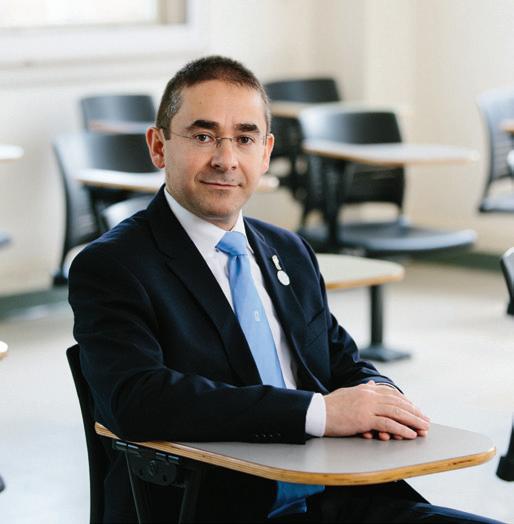
UNC-Chapel Hill to host World-Anti Bullying Forum in 2023
The University of North Carolina at Chapel Hill and Dorothy Espelage, Ph.D., William C. Friday Distinguished Professor of Education, will host the World Anti-Bullying Forum Oct. 25-27, 2023 — the first time the event will be hosted outside of Europe. Leading anti-bullying researchers, practitioners, policymakers, and educators from around the world will convene at the Raleigh Convention Center in downtown Raleigh for the biennial conference.
WABF serves as a collaborative space in the work against bullying and facilitates dissemination of research, advocacy e orts, network building, and the sharing of knowledge and content.
Espelage is a foremost expert on bullying and youth well-being. For more than 25 years, she has pursued research and evidence-based practices and sought a worldwide network of like-minded collaborators to answer questions that include: How can we prevent bullying? How can we make schools safer?
“To host this kind of international event focused on making the world a better, safer place speaks to the stature of Dr. Espelage’s work to prevent bullying and school violence and to promote the well-being of students,” Dean Fouad Abd-El-Khalick said. “It also speaks to our commitment to educating the whole child and to the field-leading research that happens in this School.”
Registration opens in January 2023, and educators may attend at a reduced fee. For more information, visit worldantibullyingforum.com, and read a Q&A with Espelage at ed.unc.edu/wabf-qa.
Lys named president of N.C. Association of Colleges for Teacher Education
Diana Lys (’94 B.A., ’97 M.A.T., ’07 Ed.D.), the School’s assistant dean for educator preparation and accreditation, was named president of the North Carolina Association of Colleges for Teacher Education (NCACTE) — the state’s leading advocacy group for policy issues regarding teacher preparation.
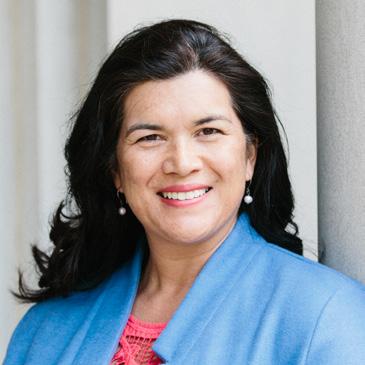
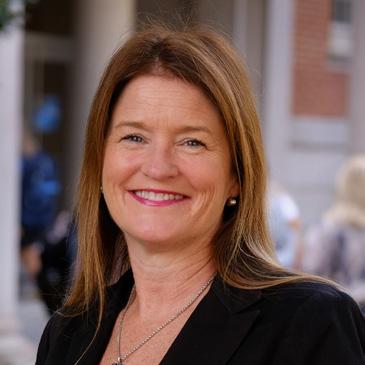
NCACTE unites North Carolina’s public and private educator preparation programs, the N.C. Department of Public Instruction, and national accreditors. Lys will serve as NCACTE president until 2024.
Leading autism researcher Brian Boyd joins faculty
Brian Boyd, Ph.D., joined the School as the William C. Friday Distinguished Professor in Education in July and brings an incredibly unique scholarly expertise and scholarly agenda that holds the potential to alter the field of autism research.
For 20+ years, Boyd has dedicated his career to ensuring high-quality education and outcomes for a most vulnerable population — children and young adults with significant disabilities, who are often subject to exclusion, isolation, and poor postsecondary outcomes. His research has led to e ective classroom and home-based interventions for very young children with autism and has helped individuals with autism to more fully engage in learning experiences.
His recent scholarship aims to engage and serve an even more vulnerable and marginalized population — autistic children and youth of color and their families — and reduce systemic barriers in special education.
Read a Q&A with Boyd about where autism research needs to go and where his work is going at ed.unc.edu/boyd.
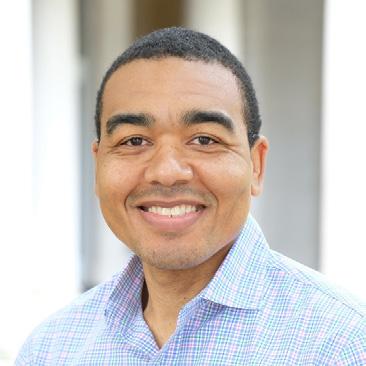
Putting passion into practice
When Asha Patel was a junior at UNC-Chapel Hill, a major in business seemed like a path to career success. But a Maymester course focused on experiential education revealed a new direction.
As graduation neared and it came time to apply for jobs, Patel went a route expected of a business school grad: She applied for consulting jobs.
“Through those interview processes, I realized, ‘I have a much higher degree of interest in teaching and education,’ so I applied to become a teacher,” she said. Her job search led to a lateral entry teaching position — or a residency — at a Union County elementary school. As a residency license teacher, she was hired to teach second grade, but had not yet obtained her full license. To continue teaching, she had to earn that license within her first three years in the classroom.
As she began her first year during the 2020-21 school year, Patel also began Pathway to Practice NC — a 100% online Educator Preparation Program o ered by North Carolina State University and UNC-Chapel Hill specifically designed to help residency license teachers earn a full license.
By the end of Patel’s first year of teaching, she had completed her Pathway to Practice NC coursework and submitted her edTPA materials. She earned initial full teaching licensure not long after.
WITH WORKING EDUCATORS IN MIND
When Pathway to Practice NC launched in 2017, the program’s visionaries — UNC School of Education and the NC State College of Education faculty members, renowned researchers and subject matter experts — had residency license teachers like Patel in mind. In 2015, the State Board of Education reported more than 4,300 lateral entry teachers, now designated as residency license teachers. In 2018, that number rose to 5,900 — a 32% increase since the program was first conceived. And the attrition rate of lateral entry teachers was growing — lateral entry teachers left the profession at a rate 91.5% higher than non-lateral entry ones.
Providing flexible, high-quality instruction and one-onone support to help teachers like Patel succeed and persist in the profession is imperative for North Carolina schools. The program provided her that instruction, support, and flexibility.
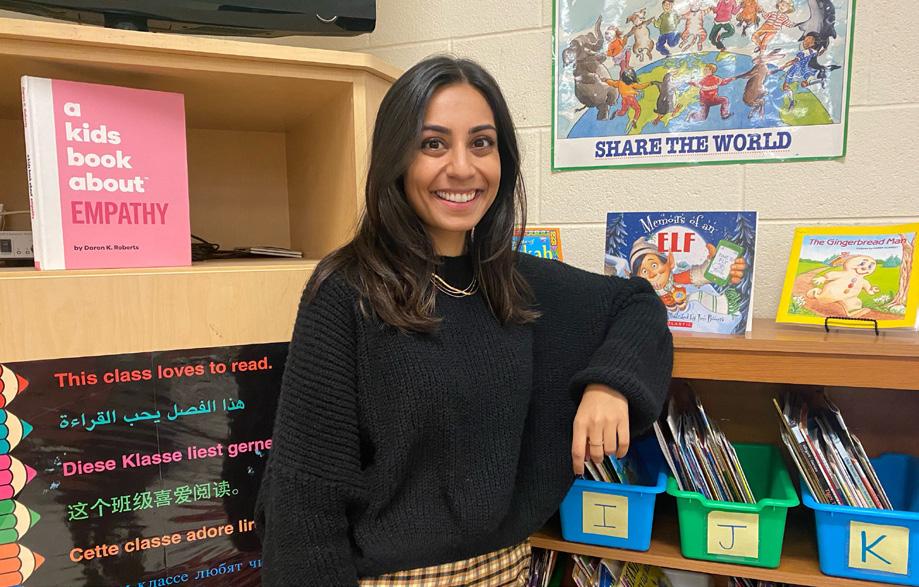
Working in Union County would have meant a two-hour drive to Chapel Hill for Patel to attend in-person classes. Online classes would have meant blocking out set times in her busy schedule.
“We recognize that first-year teachers face enormous demands and stress,” said Alison Winzeler, Pathway to Practice NC director. “It is no small feat to also pursue a licensure program while teaching.”
Pathway to Practice NC provides online, asynchronous modules Patel could complete when her schedule allowed. Each module — which provide skills in pedagogy, classroom management, content application, di erentiation, strategies for engaging, and more — was designed for her to use in her classroom.
“You’re given the autonomy to figure out how this could work in your classroom,” Patel said. “Then you implement it, reflect on it, change your approach, and do it again.”
When she needed help, Patel received individual support from her assigned facilitator, Aimee Fraulo. All facilitators are doctoral candidates at either NC State or UNCChapel Hill and are former classroom teachers.
“Aimee was such a huge support system for me,” Patel said. “Having that relationship with her was so influential in getting me through that year.”
NAVIGATING EDTPA
For any new teacher on their way to licensure, the edTPA can be a daunting step in the process.
One of the final modules of Pathway to Practice NC is totally devoted to that performance assessment. “The module focused exclusively on edTPA really sets Pathway to Practice NC apart,” said Diana Lys, assistant dean for accreditation and educator preparation at the UNC School of Education. “We build edTPA into activities throughout the modules.”
Patel passed on her first edTPA attempt. One hundred percent Pathway to Practice NC completers have passed edTPA.
To date, Patel is one of more than 400 residency license teachers — from more than 80 of North Carolina’s 115 districts — to enroll in Pathway to Practice NC. Each month, residency license teachers can apply and quickly begin work toward full licensure.
“Pathway to Practice NC really grounded me in why I chose to be a teacher,” Patel said. “The program has definitely made me a better educator. That’s what our kids need right now.”
For more information, visit pathwaytopractice.com.
POWER HOUR
On Sunday afternoons, in a nondescript strip mall in Chapel Hill, muscles are expanding, hearts are swelling, and a community is thriving. It’s all happening at Power Hour, a fully inclusive, adaptive fitness class for young adults with autism and other developmental disabilities. At Power Hour, athletes of all ages, fitness levels, and abilities get moving in a friendly, encouraging atmosphere.
“People here are so welcoming and patient with me at whatever level I’m at,” shared Hannah, an athlete in the class. “It’s not just an indi erent group of strangers; it’s a community.”
“I like meeting new people,” added Joey, “and it gets me o the couch!”
Hannah and Joey are among a number of athletes in the class who have autism. The class helps all attendees develop strength, balance, mobility, and endurance — but the primary focus is on building connections and community.
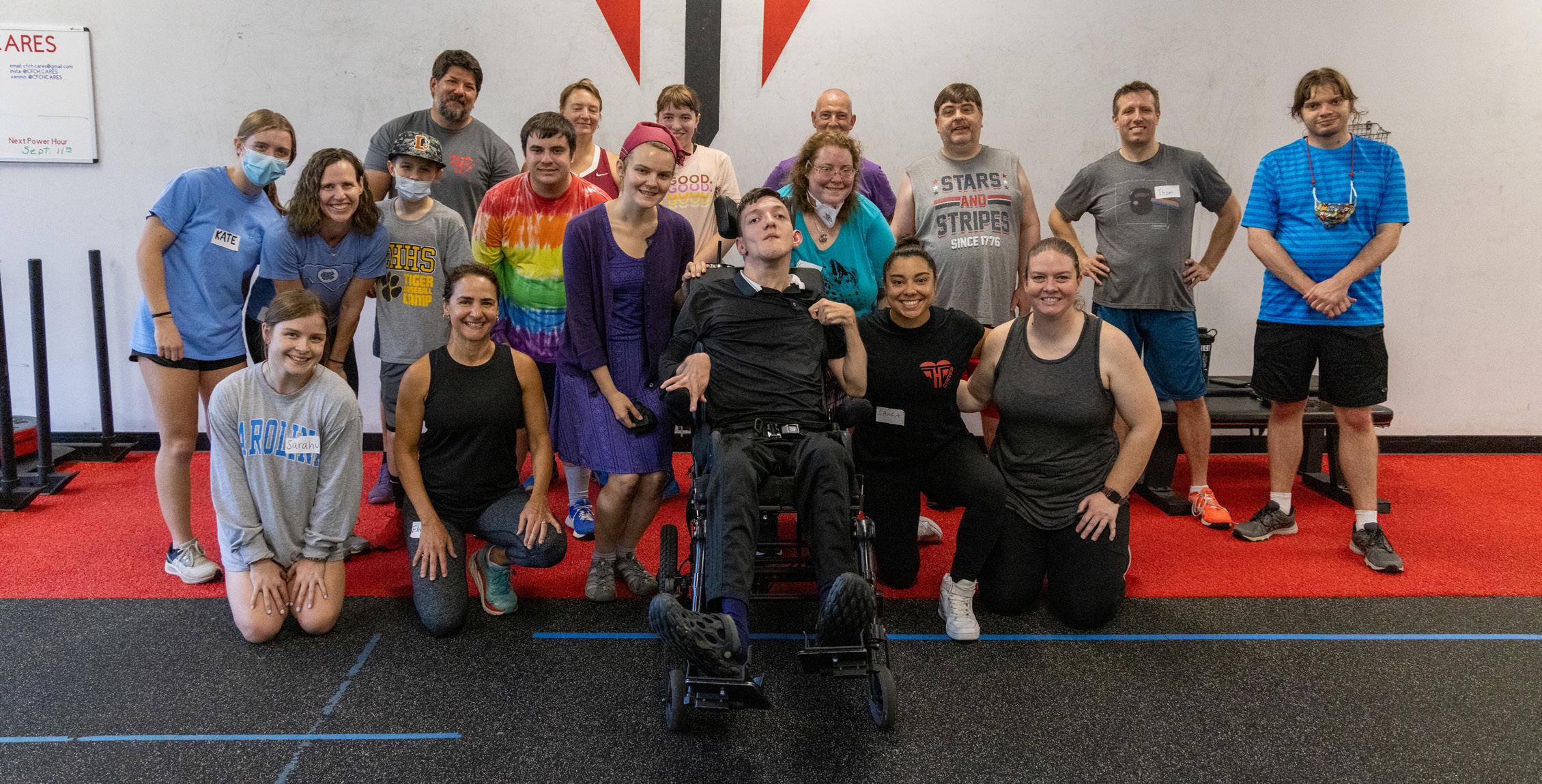
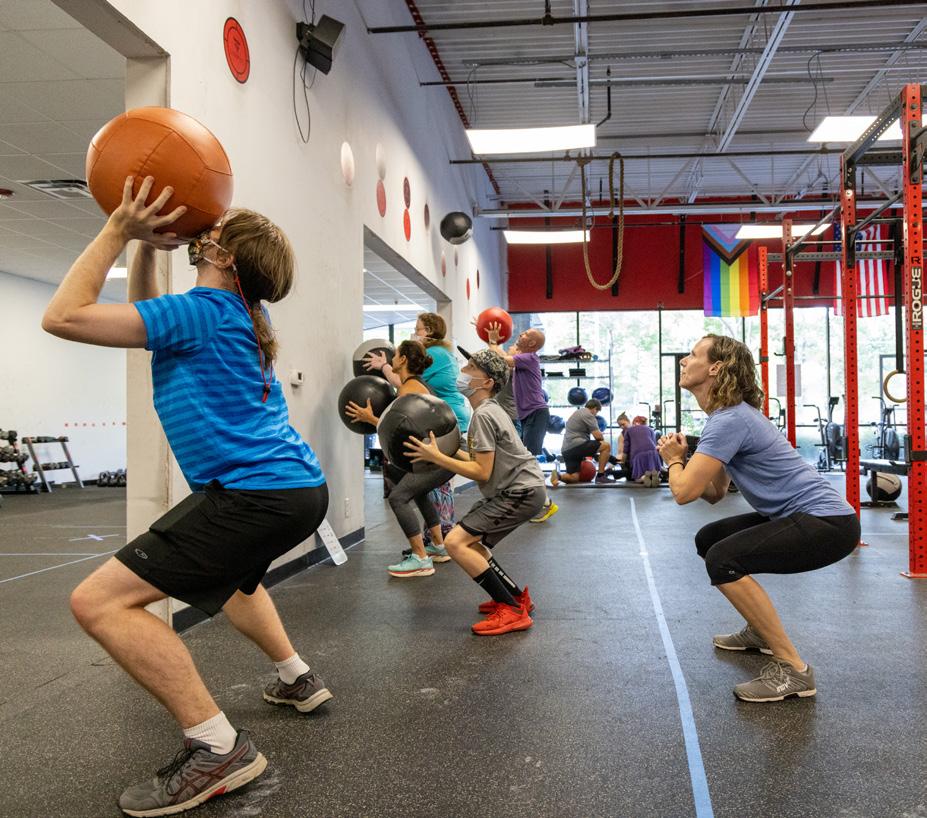
“At Power Hour, we’re trying to build inclusive communities outside of school or work settings,” said Kara Hume, Ph.D., who coaches the class. An associate professor at the UNC School of Education, Hume has worked with children and young adults with autism for more than 30 years. In the past 10 years, her work has focused more on supporting autistic adolescents and young adults.
“We know that exercise has proven positive e ects on a variety of outcome areas, from academics to adaptive behavior,” Hume shared. “But there is still a great deal to understand about how exercise can enhance mental health and self-determination — two areas in which I have great interest.”
The classes start with social interactive games that have a fitness component, such as being on a team doing relays or assigning the class di erent exercises depending on whether they agree with a true or false statement, such as “I prefer UNC over Duke.” One side may be instructed to do sit-ups while the other side does push-ups. Just like any fitness class, there’s always a modification. Gunnar, a young man in the class who uses a wheelchair, is sometimes in his chair participating in group activities that tighten and loosen his muscles; other times he’s out of his chair doing physical therapy.
“I had some trouble keeping up at first,” shared Peter, an athlete who travels from Pittsboro to attend the class. “But everyone is supportive, and I’ve made so many
friends.” Another athlete, Rico, interjected: “I like the push-ups.” (He was on the side who liked UNC, though, so he did sit-ups.)
Hume is part of a truly exceptional group of faculty members and scholars at the UNC School of Education with expertise in special education who are focused on serving students with autism. These faculty seek to find solutions to improve health and well-being through applied research.
“We are in communities, in homes, in schools working with autistic individuals who are providing their input along the way,” Hume said. “I regularly hear from these youth, their families, and teachers, that we need more opportunities to build connections, more places to foster a sense of belonging, and more e orts to transform communities to better understand and support those who are neurodiverse. I believe sports and fitness — and, in this case, Power Hour, can be a vehicle for all of this.”
As the coach of Power Hour, Hume said she can see the many benefits for all of the participants in each class. “I can measure that in the amount of laughing we do and the amount of weight we move. But as a researcher, I have always wanted the opportunity to formally examine the social and health impacts of our program.”
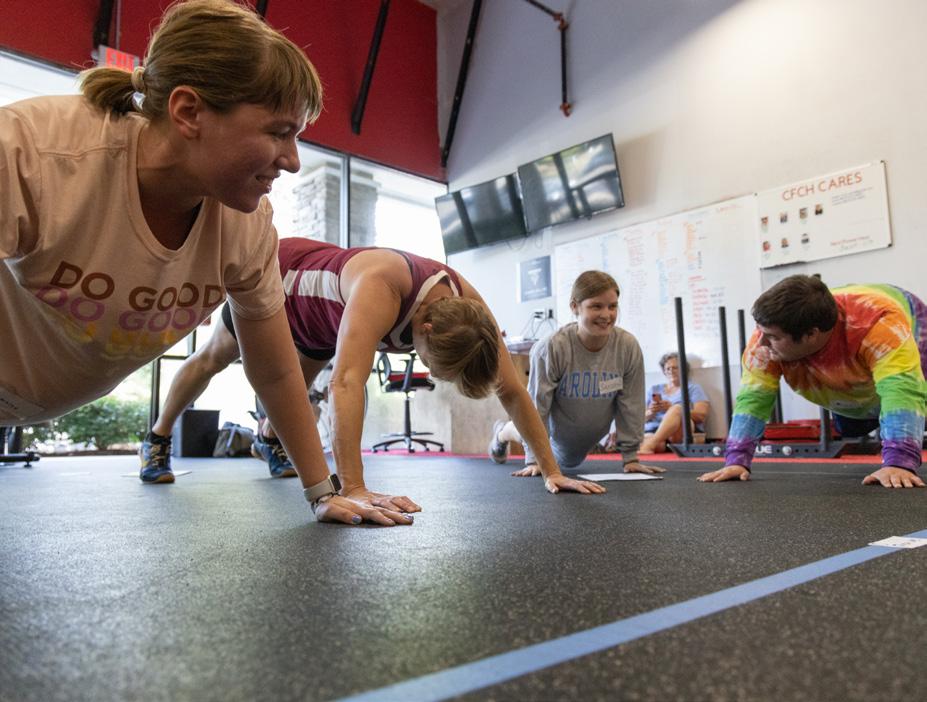
As the newly appointed Richard “Dick” Coop Faculty Scholar in Education, Hume now has that opportunity. With the support of the award, she is designing and executing a small-scale pilot study on the e ect of Power Hour — both on the athletes with disabilities and the other gym members who join in the class.
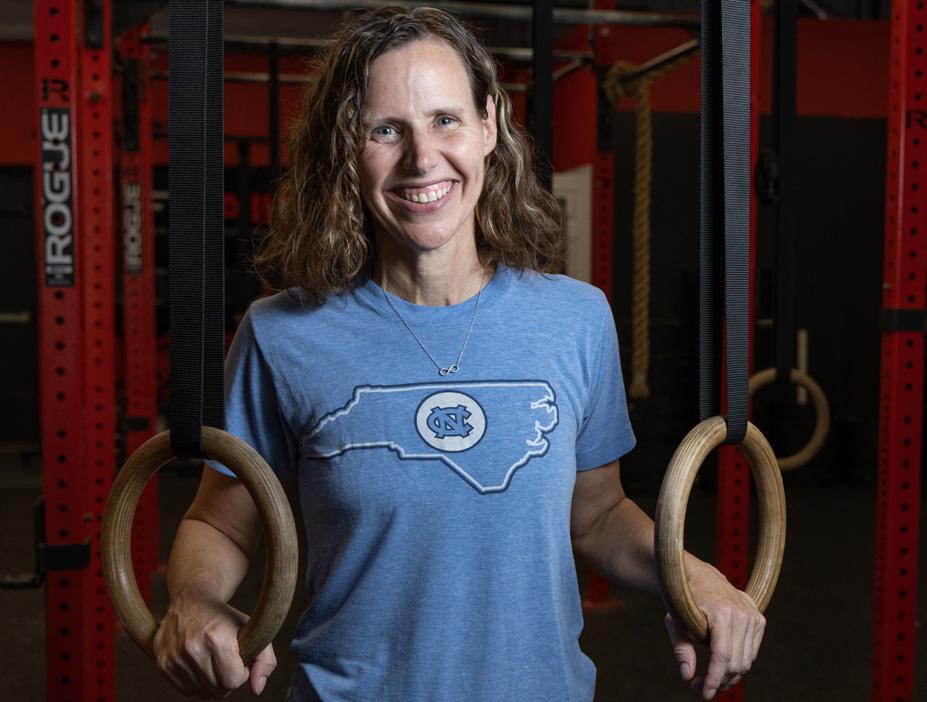
Hume’s hopes for this study are two-fold. One, she would like to see a reduction in feelings of isolation and loneliness for young adults with autism. She also wants
to measure the benefits for participants who do not identify as having a disability.
“Everyone shares that they feel more engaged, happier, and healthier at the end of our sessions,” she said. “Special education research usually looks at the impact of activities on those with disabilities, but I think it is equally important to understand how we all benefit from working out and hanging out together. I want to know more about how the full community is thriving as the result of our participation in Power Hour — recognizing it’s a much more reciprocal process. I don’t think we know as much about that as we should.”
Hume plans to build on this work and has already submitted a grant request with a similar focus to the National Institutes of Health. The preliminary data from this pilot study will help her make a more compelling case to future funders.
The award is made possible by a gift from Malbert Smith III (’77 M.Ed., ’80 Ph.D.) and his wife, Alisa Edwards Smith. The Smiths made the gift in honor of three former UNC School of Education professors — Richard “Dick” Coop, Gary Stuck, and Kin White — to create opportunities and provide invaluable resources to help advance the research of faculty scholars.
“I appreciate that the school sees the value of this type of work and is investing in finding ways to keep making this important work happen,” commented Hume. “I am grateful and excited to have the opportunity to more formally study the e ects of Power Hour with the support of these funds.”
Three Carolina alumni recognized for extraordinary work to advance education
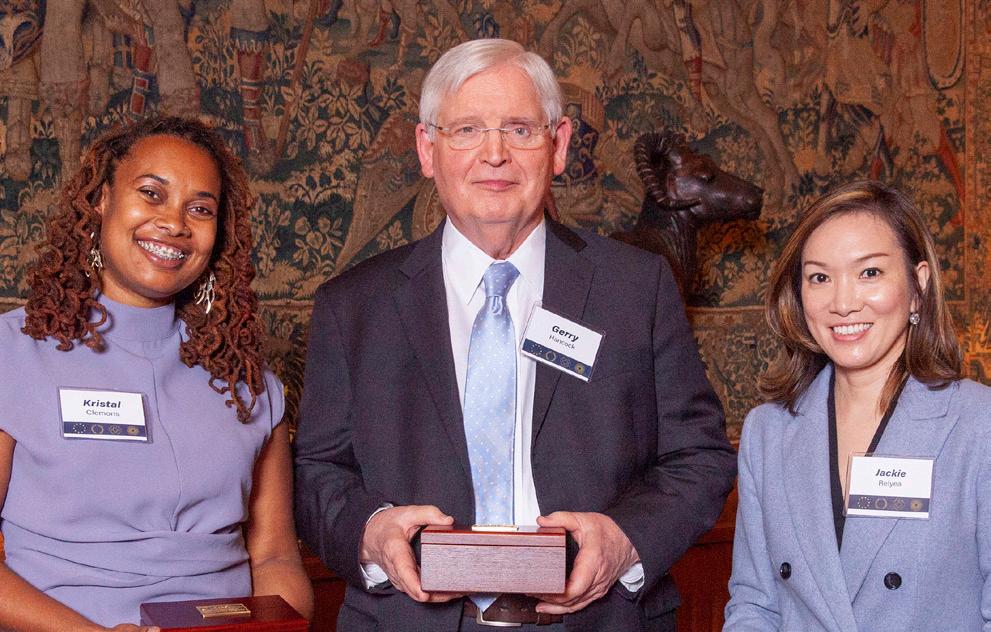
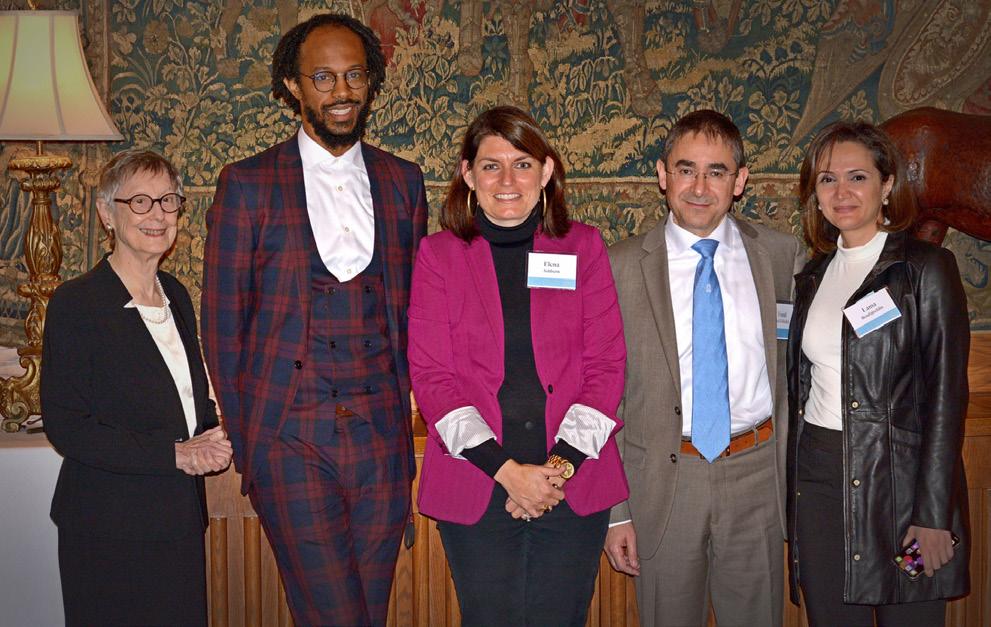
The UNC School of Education honored three alumni at its 20th Distinguished Alumni Awards Ceremony on Saturday, Oct. 15. Gerry Hancock (’65 B.A.) — a North Carolina lawyer who has spent his career working for better educational opportunities for North Carolinians and who organized the filing of Leandro v. North Carolina in 1994 — received the Peabody Award. Kristal Moore Clemons (’09 Ph.D.) was honored with the Distinguished Leadership Award most notably for her service as national director of the Children’s Defense Fund Freedom Schools® program. Jackie Eunjung Relyea (’15 Ph.D.), an assistant professor at NC State University, received the Outstanding Young Alumna Award for community-engaged research and practice to help bilingual students become proficient readers.
The UNC School of Education honored four faculty members, with one named to an endowed professorship and three named as faculty scholars, at a Sept. 8 event on the UNC campus. Brian Boyd was invested as William C. Friday Distinguished Professor in Education, Nianbo Dong as the Kinnard White Faculty Scholar in Education, Kara Hume as the Richard “Dick” Coop Faculty Scholar in Education, and Ethan Hutt as the Gary Stuck Faculty Scholar in Education. Dean Fouad Abd-El-Khalick was also recognized for an appointment as Alumni Distinguished Professor, a professorship awarded by the UNC O ice of the Provost. Malbert Smith III (’77 M.Ed., ’80 Ph.D.), who made the faculty scholar awards possible with his wife, Alisa, was in attendance as well as former faculty members Gary Stuck and Kin White and Dick Coop’s widow, Sharon.
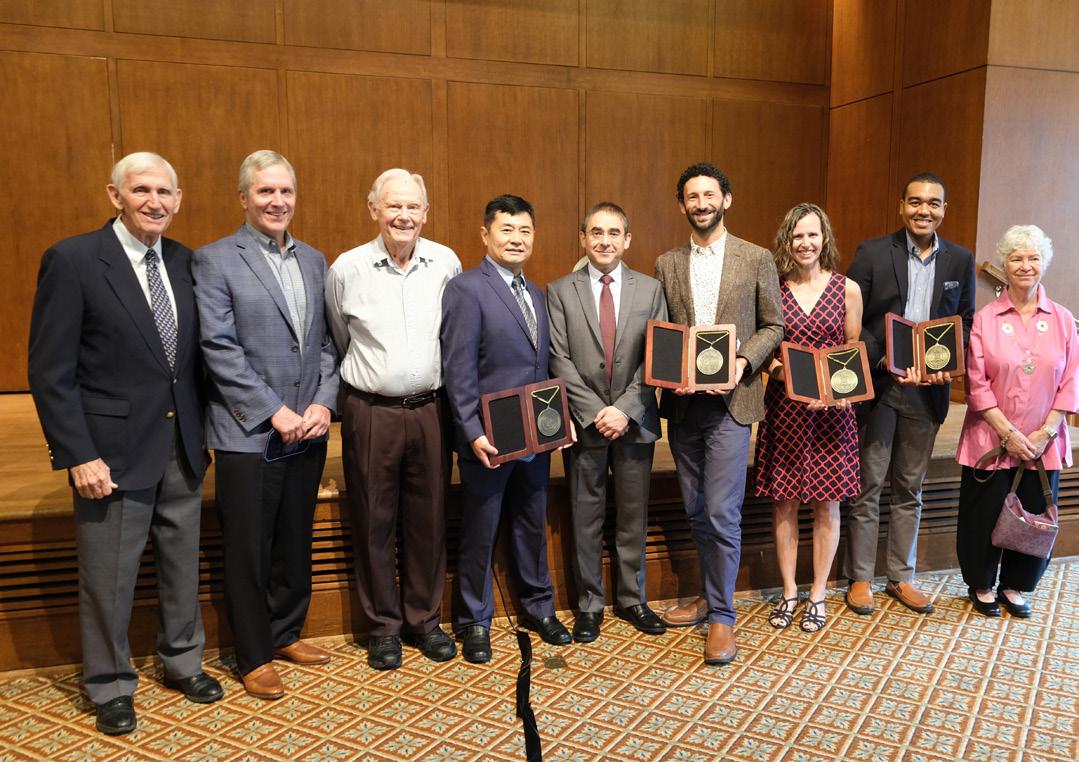
A celebration of scholarly excellence
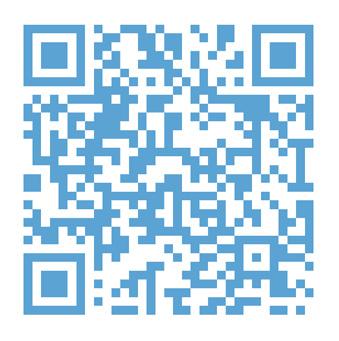
 The University of North Carolina at Chapel Hill and Person County Schools held a ribbon-cutting ceremony to open the Carolina Community Academy on Thursday, Aug. 25, at North Elementary School in Roxboro, N.C. In this image, UNC Chancellor Kevin M. Guskiewicz and PCS Board of Education
Chair Freda Tillman cut the ribbon held by Carolina Community Academy students Liam Adams and Adrian Gomez-Patricio.
Photo courtesy of Jon Gardiner/UNC-Chapel Hill
The University of North Carolina at Chapel Hill and Person County Schools held a ribbon-cutting ceremony to open the Carolina Community Academy on Thursday, Aug. 25, at North Elementary School in Roxboro, N.C. In this image, UNC Chancellor Kevin M. Guskiewicz and PCS Board of Education
Chair Freda Tillman cut the ribbon held by Carolina Community Academy students Liam Adams and Adrian Gomez-Patricio.
Photo courtesy of Jon Gardiner/UNC-Chapel Hill













